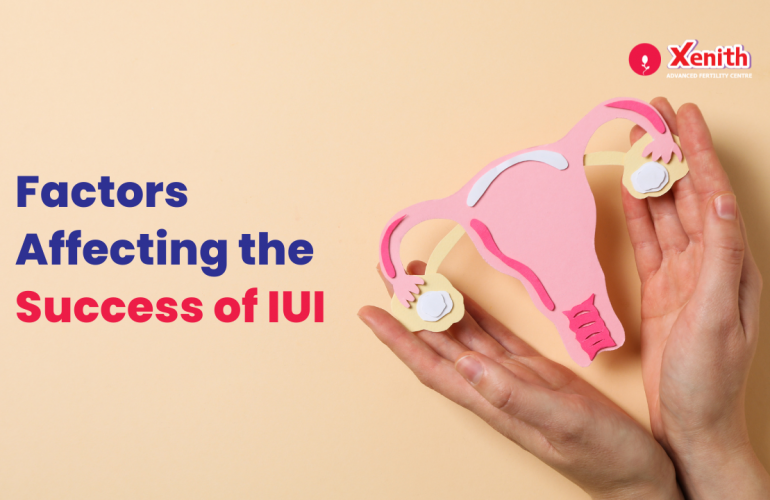IVF day is observed on July 25th which is the birthdate of the first IVF baby named Louise Joy Brown born in 1978 on this day. Since then the technology used for IVF treatment has grown in leaps and bounds. Here are 5 common questions that are asked frequently.
1)What is IVF
In vitro fertilization (IVF) is a medical procedure used to help deal with infertility and aid in conception. At the beginning of IVF procedure, the woman is given fertility medications to stimulate her ovaries in order to cause multiple eggs to mature at the same time. She will be closely monitored during this time using blood tests and ultrasound scans. When the eggs are finally matured, they are then retrieved under light anesthesia using a fine needle under ultrasound guidance. The retrieved eggs are then fertilized with sperm that has already been cleaned and washed, in a culture medium in a laboratory. The fertilized eggs develop into embryos and after 3 to 5 days, these embryos are transferred back into the woman’s womb or uterus for implantation. Pregnancy is successful if the embryo attaches itself into the uterus lining or endometrium. The mature eggs or the embryo can also be frozen and stored for future use. The whole procedure can take anywhere from 4 to 7 weeks.
2)How successful is IVF
The IVF success rate is dependent on many factors like age, cause and duration of infertility, sperm and egg quality, as well as other health issues surrounding the patient. One big factor is age and the success rate is higher in women under 35 and rapidly decreases after the age of 40 due to lower egg quantity and quality. Other health issues like weight, PCOS(polycystic ovary syndrome), diabetes and other disorders can affect conception. Being obese has been shown to decrease the chances of success and thus following a good diet and getting enough exercise might improve the chances of conception. An imbalance of hormones in women suffering from PCOS, can play havoc with the monthly reproductive cycles and this too could be rectified using proper diet, exercise and certain medications. If the sperm is slow, a procedure called ICSI(intracytoplasmic sperm injection) could be used where the sperm is injected directly into the egg with a fine needle to aid in fertilization. A technique called endometrial receptivity analysis could be used to study the endometrium in case of recurrent IVF implantation failure. Laser assisted hatching is a procedure where a slight gap in the outer shell of the embryo is created to make it easier for the embryo to implant. A preimplantation genetic screening could also be done to look for any chromosomal abnormalities in the embryo before implantation. Thus many challenges have been overcome to ensure a greater chance of success. The success rate can also depend on the clinic you choose to undergo your IVF procedure and their success rate. Does the clinic have the proper equipment and the expertise of the specialist for ensuring better chances of success? By maintaining a healthy lifestyle, success rates could be optimized. It is best to undergo a complete exam and consultation with your specialist to find out what is best for your unique circumstances.
3)Will IVF increase my chances of having twins or triplets
Statistically, there is a slightly greater chance of multiple pregnancies in women undergoing IVF. The main reason for this could be because more than one embryo might have been transferred back into the uterus for implantation to improve the odds of achieving a successful pregnancy. So the number of embryos you want transferred needs to be discussed with your specialist. Even though having twins when you are experiencing infertility might sound like good news, its best to aim for only one baby because there are risks involved with multiple births like preeclampsia, gestational diabetes, preterm delivery and low birth weight to name just a few risks on both mother and baby.
4)Are there any side effects of IVF
IVF treatment is usually very safe but there can be some potential side effects. There may be hormonal effects like irritability, mood swings, depression, hot flashes, bloating, breast tenderness, nausea, and bruising at the injection sites. Abdominal pain or slight cramping might be experienced after egg retrieval. In very rare instances ovarian hyperstimulation syndrome(OHSS) might occur causing vomiting, nausea, shortness of breath, severe stomach pain. Xenith is an OHSS free clinic as patients are screened for this possibility before starting stimulation and selecting the right protocol to completely eliminate this risk.
Nowadays due to better treatment procedures, most patients experience no real pain throughout the treatment other than some bloating and in the end, this is well worth the trouble because you will be able to have a child that you have longed for.
5)Why is IVF so expensive
The cost of the IVF procedure can vary from couple to couple depending on the reason for the infertility, the various treatment procedures to be included along with IVF and the number of IVF cycles done in order to be successful in having a baby. IVF treatment costs can vary from clinic to clinic due to the more technological equipment used and more highly qualified personnel. The numerous ultrasound scans that need to be carried out and the various other tests like blood tests to monitor the follicle development can seem daunting. There also might be the cost of donor eggs or sperm, freezing of the embryos or various other extra treatments that might be required like laser assisted hatching, ICSI where sperm is injected into the egg, or pre genetic screening of the embryo. The numerous medications and hormonal injections can also be costly along with the single use disposables used in the lab for embryo formation. Together all these costs can add up making IVF an expensive treatment. However, it is important to remember that conception in itself is a miraculous event and even when in vitro must be treated with the same care that it is in vivo. If you have further questions regarding IVF, feel free to contact us at Xenith Advanced Fertility Centre.




